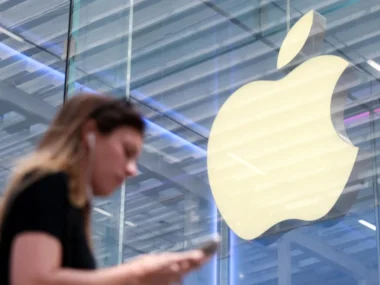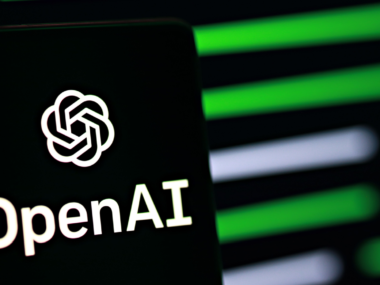Nadia Alaee and her team are actively seeking individuals who can contribute their expertise in artificial intelligence (AI) to the HR team at Deel, a software company located in San Francisco.
Nadia Alaee and her team are actively searching for individuals who can integrate artificial intelligence (AI) to streamline administrative tasks related to staff turnover at Deel, a San Francisco-based software company.
Their quest for AI skills extends beyond the HR team; Deel is seeking people with experience in tools like ChatGPT, a generative AI software developed by OpenAI, for both technical and non-technical roles. According to Ms. Alaee, who holds a senior director position at the firm, if someone can join and impart knowledge about AI tools, instructing team members on their specific applications, it would be a valuable asset for the company.
The latest wave of AI technology emerged in late 2022, featuring a public version of ChatGPT, but competitors such as Google’s Bard and Anthropic’s Claude have also entered the scene. This form of AI, known as generative AI, has the capability to generate a wide range of content, from computer code and artwork to essays. While not always flawless, it offers an affordable and quick content production solution, which has garnered interest from businesses.
According to a report by LinkedIn, job postings mentioning AI or generative AI have more than doubled globally in the past two years. LinkedIn’s research also indicates that 38% of UK workers anticipate significant changes to their jobs in the coming year due to AI, with 76% expressing excitement about these changes, but 36% admitting to feeling overwhelmed by the learning curve.
Another report from software company ServiceNow reveals that 41% of office workers admit to currently lacking the technical skills required to work alongside and utilize AI systems.
Ngaire Moyes, UK country manager at LinkedIn, emphasizes that AI can help eliminate repetitive tasks, enhance productivity, and create space for more strategic and creative work, highlighting its efficiency benefits, particularly for smaller businesses.

Deirdre McGettrick employs artificial intelligence (AI) for copywriting tasks on her furniture comparison website.
Deirdre McGettrick, the CEO and co-founder of ufurnish.com, a UK-based online furniture comparison website with a staff of 16, highlights the challenges faced by fast-growing, early-stage companies: time and resources are their two major constraints. She emphasizes that AI can be a valuable asset in overcoming these challenges by accelerating the business’s output without the need for additional resources.
Ms. McGettrick employs AI in two key areas. Firstly, it’s utilized for content creation, where instead of outsourcing copywriting tasks, her team members use ChatGPT to generate copy. The generated content is then reviewed by a staff member before being published on the website.
Secondly, AI plays a role in software development. The company actively seeks software engineers who are proficient in using AI to write code, further enhancing their technical capabilities.
Deel’s employees are already utilizing AI tools to assist managers and staff in crafting performance reviews. According to Ms. Alaee, AI helps certain employees provide more comprehensive responses to questions, instilling confidence in their writing abilities.
However, there is a drawback to Deel’s use of AI in performance reviews, as the process tends to be less personalized. Ms. Alaee acknowledges that human input is essential when employing AI tools to ensure that responses are tailored to the individual or situation, preventing them from feeling robotic, generic, or merely a checkbox exercise.
Furthermore, companies must be cautious when using AI tools to avoid legal or security risks, as well as the risk of losing the organizational culture or the value of human expertise. Overreliance on technology can lead to misinterpretations, violations of company policies, or errors due to AI bias. Ms. Alaee points out that employees who excessively depend on these tools may struggle to meet their targets because AI has its limitations.
Professor Emma Parry, specializing in human resources at the Cranfield School of Management, emphasizes that the effectiveness of AI systems depends on the quality of the underlying data. Since data often reflects human decisions, there’s a risk of perpetuating or introducing human biases, potentially leading to discrimination and reduced opportunities for marginalized individuals in the workplace.
For now, AI is seen as a tool that enhances people’s job performance rather than replacing them. Success in many job roles will depend on the ability to adapt while working alongside AI in daily work life, and organizations may need to undergo redesign and restructuring to remain effective, says Prof. Parry.
LinkedIn reports that two-thirds of UK professionals have not received formal AI training or guidelines from their employers. Ms. Moyes from LinkedIn emphasizes that employers are not expecting everyone to become AI experts but are seeking AI literacy, which involves understanding how to effectively utilize available tools to enhance job performance.

Entrepreneur Paola Dyboski has found it surprising that certain companies are hesitant to adopt AI technology.
Paola Dyboski, the founder of Dr. Zigs, a specialty bubble toy manufacturer in North Wales, has expressed surprise at the reluctance of some firms to embrace AI tools, especially in their marketing endeavors.
For individuals looking to acquire AI skills, the first step is to experiment with the many free versions of AI tools available online. According to Ms. Alaee, becoming familiar with AI tools by using them and staying informed about new developments is crucial.
Moreover, there is a wealth of online courses that focus on understanding various AI tools and how to effectively utilize them, including specialized courses tailored to specific professions.
However, it’s important for both business leaders and employees to consider the purpose behind their adoption of AI. Instead of constantly asking how to make processes more efficient, they should shift their perspective to ask how they can make things better. This approach allows them to harness AI as part of a hybrid human-AI workforce for maximum benefit, as suggested by Ms. Parry.











